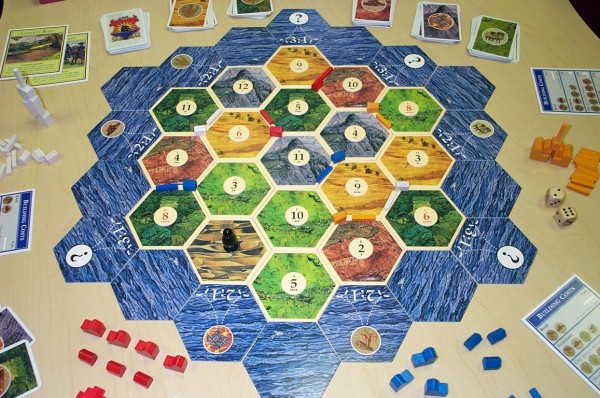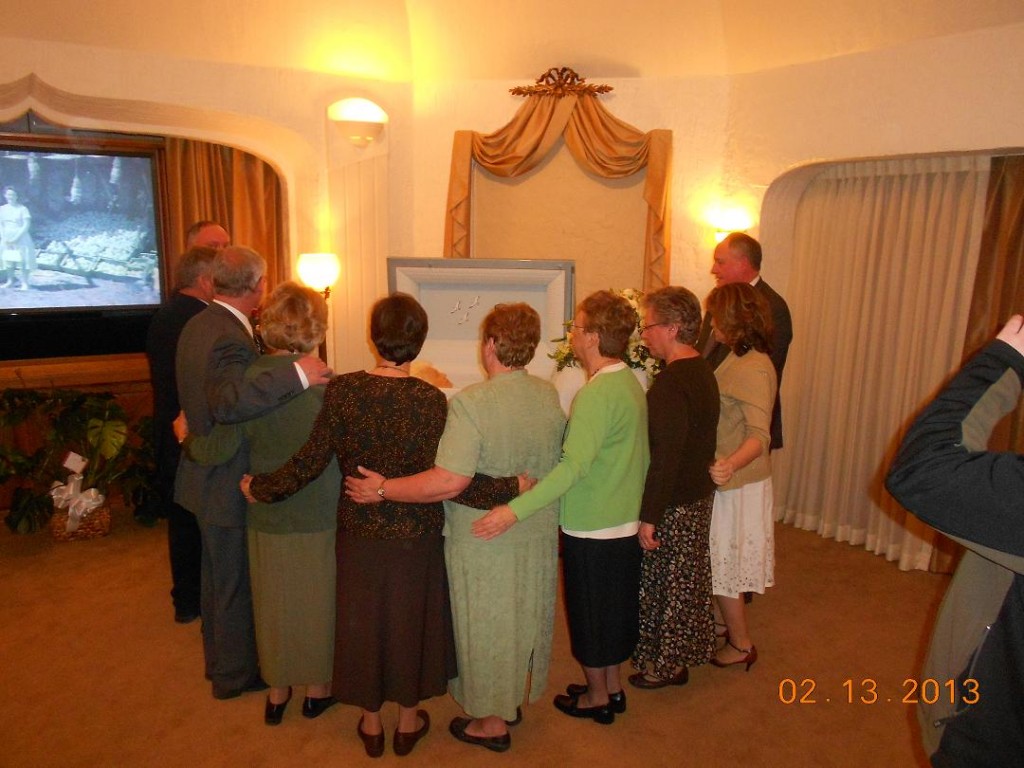Last week I discovered something new. And as with most of my discoveries, I’m about a decade behind in discovering it. Yes, my faithfuls, that game you all left behind your junior year of college–the Settlers of Catan —has only recently found it’s way into my home and my psyche. And I’m not very good at it. And that makes me mad.
It makes me mad that I’m always just one settlement, one city, one Development Card away from winning. It makes me even madder when my seven-year old son steals my Longest Road card for the win. And I rage–oh how I rage–when my smug, victorious husband walks away–yet again–with the triumph that should have been mine. He’s already stolen my youth and beauty; must he steal my Settlers of Catan victory, too?
You should know that I am not a competitive person by nature. I’m a blue-personalitied middle child who could stand to be a bit more competitive, as it would drive me to be a more impressive person. (I’d be smarter, wealthier, and prettier.) (And I would have married much better.) (But that’s a whole ‘nother thing.) However, when I invest two-plus hours in a board game–two hours that would otherwise be spent sewing, canning, or doing genealogy, no doubt–I want to win. And I want to win bad. So when I don’t win, which is pretty much always, I just don’t take it very well. In the interest of full disclosure, let me define what not “taking it very well” means:
[sociallocker id=”9134″]
- I find myself yelling–for real yelling–at my husband while he negotiates a trade with our little boy that could jeopardize my next move. I accuse said husband of taking advantage of said son’s young age. He accuses me of using my accusation against him to manipulate my son into rejecting said trade, all to advance my own interest. My son looks at us both with confusion and contempt. It isn’t pretty.
- I find myself irritated with my children as they laugh and chatter with each other while I’m trying to concentrate. More For Real Yelling. (Who told them they could have fun?)
- I find myself begrudgingly congratulating my thirteen-year old daughter for her first-ever win, consoled only by the fact that my smug husband didn’t win yet again. It actually hurts to choke out the compliment to my normally beloved girl. I mask my frazzled emotions as best I can (read: I storm into the kitchen and tear into a chocolate-chip cookie with one of my Angry Bites.) (Have I ever told you about my Angry Bites?) (That’s a whole ‘nother thing.)
And that’s the mild stuff. The real sound and fury came a few nights ago when Derrick jilted me out of a mightily deserved win due to an alleged “technical error.” I felt the “error” (whatev) should have been overlooked, since I was playing for only the second time and my oversight was a common one among new players. Derrick resolved that should the mistake be excused, my victory would be tainted and thus go unrecognized by him. The choice was mine: I could stand my ground and walk away with a win–but no bragging rights–or I could concede his point and continue playing with the possibility of an eventual, “legitimate” win (which my first win was, cheater.) Either way, my hard-fought, eagerly anticipated victory was spoiled. And boy was I mad.
After a lengthy internal debate, I gave up my (legitimate!) win and we continued playing. Of course Derrick won two turns later and immediately announced, with all the magnanimity of an adult speaking to a child, that he would “split the win” with me. It would seem that securing his own victory made him very generous. I responded to this proffered gift by rehearsing his own favorite line back to him:
“I ain’t splittin’ nothin’.” This is how Derrick responds every time I ask him to split a dessert with me at a restaurant. (Derrick does not believe in splitting food.) (Even with his wife.) (But that’s a whole ‘nother thing.)
He said: “Come on, Jen. Don’t be mad. I’m offering to split it with you.” Oh be still my heart. Such a sacrifice.
I said: “No. Take your win. I hope you feel good about yourself.”
He said: “Thank you. I do.”
I said: “You can never give an inch, can you? ”
He said: “We have to play by the rules. Otherwise winning doesn’t mean anything.” Oh, so noble. Such a purist.
I said: “Yeah, but when someone’s still learning a game, we always help explain it the first couple of times. I just didn’t know I didn’t have any city-blocks left. You could have let me keep my cards after I realized it.”
He said: “You should have known. We talked about it.”
I said: “No we didn’t.”
He said: “Yes we did.”
I said: “No we didn’t.”
He said: “Yes we did.”
I said: “I’m going to bed.”
He said: “It’s early. Come on, it’s Friday night. Let’s do something else.”
I said: “I’m going to bed.”
He said: “Don’t be mad. It’s just a game.”
I said: “I’m going to bed.”
And I marched up the stairs, slamming my slipper-covered feet into the carpet as loudly as I could. (It wasn’t very loud.) I shut the bedroom door soundly, as slamming it may have lessened my credibility at this point. I changed huffily into my Mom Power Suit (snowflake flannel pajamas), washed my face, brushed my teeth, and got into bed.
And I lied in bed for a long, long time, unable to fall asleep. Because I was mad.
And I heard Derrick get into bed two hours later and I still couldn’t fall asleep. Because I was mad.
And I heard him snoring softly, no doubt dreaming blissfully about his smarmy win. And I had to listen to it as I lied next to him, wide awake. Because I was mad.
And after many hours, my anger gave way to boredom which gave way to fatigue and I finally fell asleep. And I woke the next morning with just one question on my lips for my husband and children:
“Who wants to play Settlers of Catan with me tonight?”
The kids looked at each other and then back at me with large, silent eyes as my husband walked quietly backward out of the room. No takers.
That made me mad.
[/sociallocker]




